I've seen there are actually two (maybe more) ways to concatenate lists in Python:
One way is to use the extend() method:
a = [1, 2]
b = [2, 3]
b.extend(a)
the other to use the plus (+) operator:
b += a
Now I wonder: which of those two options is the 'pythonic' way to do list concatenation and is there a difference between the two? (I've looked up the official Python tutorial but couldn't find anything anything about this topic).

